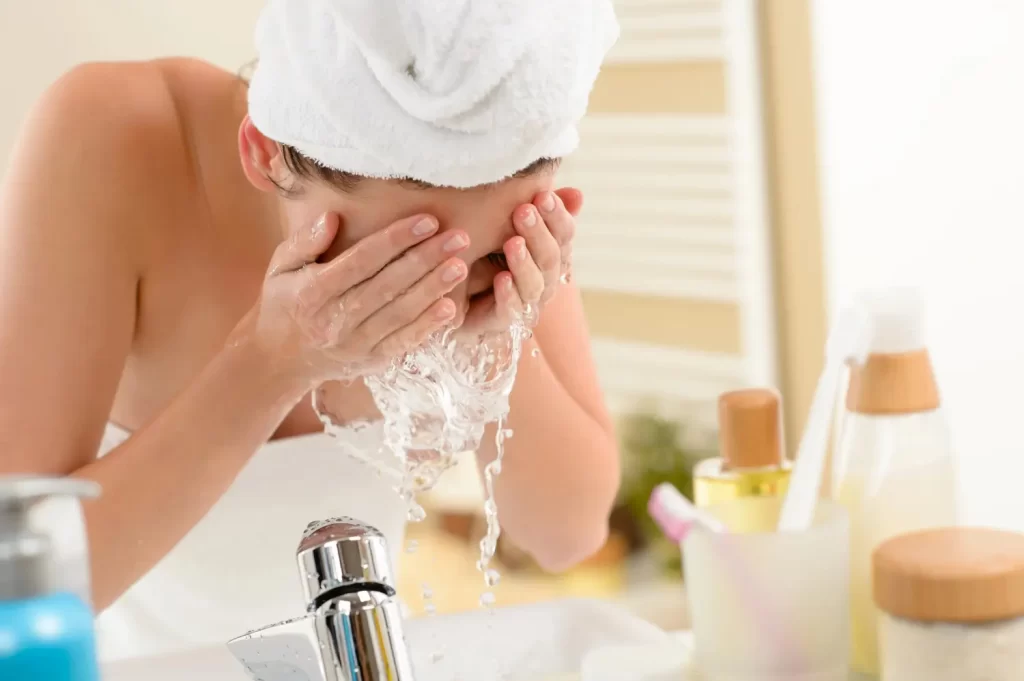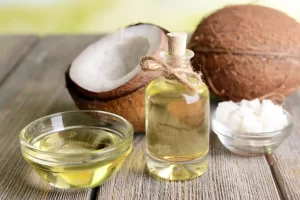
Wrinkles might attract attention but the true narrative of menopausal skin extends beyond the surface. The reduction of estrogen leads to skin that becomes noticeably drier with thinner texture and increased sensitivity. Fine lines become more noticeable and your skin loses its brightness which makes your usual skincare routine ineffective.
Menopause extends beyond hormonal changes and deeply transforms your skin’s structure and function. The combination of reduced collagen production, diminished natural oils and a compromised skin barrier requires your skin to have additional support rather than exposure to harsh products.
But here’s the good news: Applying the correct skincare strategy during menopause allows skin to reach optimum health.
This guide presents 10 expert-supported skincare tips which address the specific needs of menopausal skin. These skincare tips will guide you back to skin confidence through steps to boost hydration and rebuild your skin barrier alongside selecting proper anti-aging ingredients and consulting a dermatologist when necessary.
Knowing what’s happening is the best tip when it comes to caring for your skin. Menopause triggers hormonal shifts that can dramatically impact your skin’s health and appearance. Lower estrogen levels reduce collagen production, leading to thinner, less elastic skin that’s more prone to dryness and sensitivity. This phase also often causes a decrease in natural oils, which means your skin may feel rough or flaky.
Understanding these changes is the first step in effective skincare for menopause, allowing you to choose products and routines that support your skin’s evolving needs rather than working against them.
During menopause, your skin’s ability to retain moisture diminishes, making deep hydration essential. Using rich, nourishing moisturizers helps restore the skin’s barrier and combats dryness and tightness. Look for ingredients like hyaluronic acid, which attracts moisture, and ceramides, which reinforce the skin’s protective layer.
Applying moisturizer twice daily can make a noticeable difference in keeping menopausal skin soft, plump, and comfortable throughout the day.
Menopausal skin becomes more sensitive, so it’s important to choose cleansers that won’t strip away natural oils or cause irritation. Avoid harsh soaps and foaming cleansers with strong fragrances or sulfates. Instead, opt for pH-balanced, fragrance-free formulas that cleanse effectively while maintaining your skin’s moisture balance.
A gentle cleansing routine helps preserve the skin’s natural barrier and prevents dryness and redness, which are common concerns during menopause.
As menopausal skin loses collagen and elasticity, incorporating anti-aging ingredients can help restore firmness and radiance. Retinoids, peptides, and antioxidants are powerful tools for boosting skin renewal and protecting against environmental damage. However, menopausal skin can be sensitive, so start slowly with retinoids and always pair them with plenty of moisturizer to minimize irritation.
Using these ingredients wisely will support skin resilience and a youthful glow during menopause.

Menopausal skin is more vulnerable to sun damage due to thinning and decreased natural protection. Applying a broad-spectrum sunscreen with at least SPF 30 every day is essential to prevent premature aging, pigmentation, and further skin sensitivity.
Make sunscreen a non-negotiable part of your daily skincare for menopause routine—even on cloudy days or when indoors near windows—to keep your skin protected and healthy.
A strong skin barrier is vital for protecting menopausal skin from irritants, moisture loss, and inflammation. Ingredients like niacinamide and ceramides help reinforce this barrier by restoring lipids and calming redness. Regular use of barrier-repairing products can reduce sensitivity and improve overall skin texture, making your skin more resilient to environmental stressors.
Focusing on barrier repair is key to maintaining healthy, comfortable skin through menopause.
Exfoliation helps remove dead skin cells and improve texture, but menopausal skin requires a gentle approach. Avoid harsh physical scrubs that can cause microtears or irritation. Instead, opt for mild chemical exfoliants like lactic acid or mandelic acid, which promote cell turnover without damaging the skin.
Regular, gentle exfoliation can brighten dull skin and enhance the effectiveness of your moisturizers and treatments.
Menopausal skin often faces unique issues like pigmentation, redness, or hormonal acne. Using targeted serums or treatments with ingredients such as vitamin C for brightening, azelaic acid for redness, or salicylic acid for acne can address these concerns effectively. Tailoring your routine to your skin’s specific needs ensures better results and helps maintain a balanced complexion.
What you eat, drink, and how you live greatly impacts menopausal skin. Staying well-hydrated, eating a balanced diet rich in antioxidants and healthy fats, getting quality sleep, and managing stress all support skin’s natural repair processes. These lifestyle habits complement your skincare routine and help maintain a radiant, youthful complexion during menopause.
Menopausal skin can present complex challenges that sometimes require professional guidance. Consulting a dermatologist or skincare specialist can help you identify the best products, treatments, and routines tailored to your unique skin needs. They can also recommend prescription-strength options or in-office treatments that enhance your skin’s health and appearance safely and effectively.
Menopause brings significant changes to your skin, but with the right approach, you can maintain a healthy, glowing complexion. Prioritizing hydration, protecting your skin with sunscreen, and supporting barrier repair are three key steps to adapt your skincare routine effectively. Incorporating gentle cleansers, anti-aging ingredients, and targeted treatments further enhances your skin’s resilience and radiance during this phase.
Start with small, consistent changes and consider professional advice to customize your care. For those interested in deeper hormonal skin care insights, exploring how nutrition influences menopausal skin could be a great next step on your skincare journey.
Related Articles










* These statements have not been evaluated by the Food and Drug Administration. This product is not intended to diagnose, treat, cure or prevent any disease.